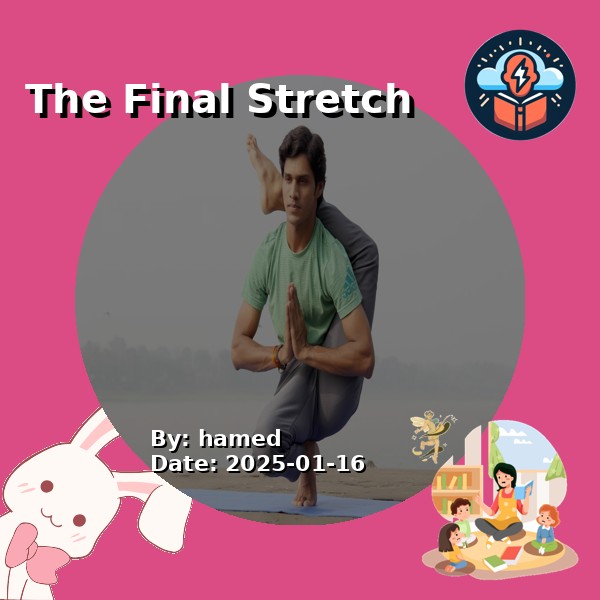The locker room was silent, save for the rhythmic hum of fluorescent lights. Emma sat on the bench, staring at her running shoes, their neon laces glowing faintly under the harsh light. The weight on her chest felt heavier than her legs after a grueling sprint.
Outside, the stadium roared—thousands of voices chanting her name. Emma. Emma. Emma.
She closed her eyes, trying to block out the noise. Tomorrow’s headline was already written: “Emma Carter: America’s Golden Girl.” The pressure pressed down like a vice. Everyone expected her to win, to shatter records, to be perfect.
“Five minutes,” a voice called from the doorway.
Emma nodded without looking up. Her coach had stopped giving pep talks—she didn’t need them. Or so everyone thought.
Her phone buzzed on the bench. A text from her mom: “You’ve got this, sweetheart. Make us proud.”
She wanted to scream. To throw the phone against the wall and watch it shatter. Instead, she set it down gently and exhaled.
When did running stop being hers? As a child, it had been freedom—the wind against her face, her feet pounding the earth, her lungs burning in the best way. Now, it felt like chains.
She stood and walked to the mirror. Her reflection stared back, her sharp cheekbones and sweat-slicked hair a portrait of someone she didn’t quite recognize.
“Why do you run?” she whispered to herself.
The question lingered, unanswered, as the door opened. Her coach appeared, clipboard in hand. “It’s time.”
Emma nodded, her stomach twisting. She stepped out into the tunnel, the roar of the crowd swelling with each step. Her competitors were already on the track, stretching, focused.
She walked to her starting block and knelt, the track’s surface cold against her fingers. The starter’s voice crackled over the loudspeaker. “On your marks.”
Emma closed her eyes, drowning out the crowd, the cameras, the expectations.
“Set.”
She inhaled, the air sharp in her lungs.
The gunshot cracked through the stadium, and she launched forward, her body moving on instinct. For a moment—just a moment—she wasn’t running for her parents, her coach, or the world.
She was running for herself.
The finish line rushed toward her, but Emma didn’t see it. She saw the little girl she used to be, laughing as she raced her shadow, free and unburdened.
When she crossed the line, the stadium erupted, the announcer’s voice booming her victory. But Emma didn’t stop to celebrate. She slowed to a walk, hands on her knees, catching her breath.
She had won.
But for the first time in years, it wasn’t the win that mattered. It was the run.
